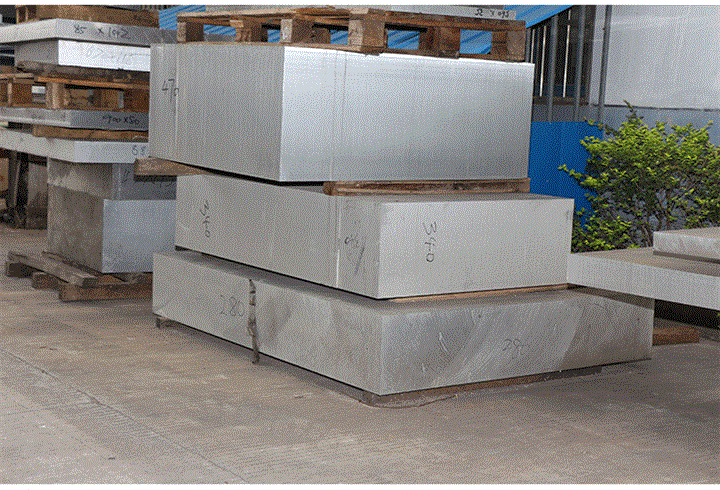- 5005 Aluminum Block
- 5052 Aluminum Block
- 5083 Aluminum Block
- 5086 Aluminum Block
- 5182 Aluminum Block
- 5454 Aluminum Block
- 5754 Aluminum Block
- 6061 Aluminum Block
- 6063 Aluminum Block
- 6082 Aluminum Block
- 1060 Aluminum Block
- 2024 Aluminum Block
- 2A12 Aluminum Block
- 7005 Aluminum Block
- 7075 Aluminum Block
- 3003 Aluminum Block
NEWS
INFORMATIONTel:
86 173448944907050 aluminum block
Last Updated :2023/06/13
7050 aluminum block introduction
The 7050 aluminum block is a high-strength heat treatable alloy with extremely high strength and resistance to spalling and stress corrosion cracking. Commonly used in aircraft structural parts for medium and heavy plate extrusions, free forgings and die forgings.
Overview of the 7050 aluminum block:
The 7050 aluminum block is a high-strength heat treatable alloy with extremely high strength and resistance to spalling and stress corrosion cracking. Commonly used in aircraft structural parts for medium and heavy plate extrusions, free forgings and die forgings. The main alloying element of the 7075 series aluminum alloy is zinc. Adding magnesium to the alloy containing 3%-75% zinc can form MgZn2 with remarkable strengthening effect, which makes the heat treatment effect of the alloy far better than the aluminum-zinc binary alloy. Increasing the zinc and magnesium content in the alloy, the tensile hardness will be further improved, but its ability to resist stress corrosion and flaking corrosion will decrease. After heat treatment, very high strength properties can be achieved.
7050 aluminum block chemical composition
Aluminum (Al) balance
Chromium (Cr) ≤ 0.04
Zirconium (Zr) 0.08~0.15
Zinc (Zn) 5.7 ~ 6.7
Silicon (Si) ≤ 0.12
Iron (Fe) 0.000 ~ 0.150
Manganese (Mn) ≤ 0.10
Magnesium (Mg) 1.9 ~ 2.6
Titanium (Ti) ≤ 0.06
Copper (Cu) 2.0 to 2.6

7050 aluminum block mechanical properties
State Tensile strength Yield strength Elongation Hardness (a) Shear strength Fatigue strength (b)
MPa ksi MPa ksi sample thickness
1.6mm (1/16in) HB MPa ksi MPa ksi
T73510 496 72· 434 63 ·12 135 - - 71 10.4
T7451 524 76 ·469 68 1·1 135 303· 44 71 10.4
T7651 552 80 ·490 71 11· 135 324 47· 71 10.4
Note: (a) Load 500kg diameter 10mm ball; (b) R.R.Moore type test, cycle 5*108 times full reverse stress.
Other performance
Density: 2.83 g/cm3 (0.102 lb/in3) at 20 ° C (68 ° F).
Annealing temperature 415 ° C (775 ° F)
Solution temperature 475 ° C (890 ° F)
Aging temperature 120-175 ° C (250-350 ° F)
The 7050 aluminum block is a high-strength heat treatable alloy with extremely high strength and resistance to spalling and stress corrosion cracking. Commonly used in aircraft structural parts for medium and heavy plate extrusions, free forgings and die forgings.
Overview of the 7050 aluminum block:
The 7050 aluminum block is a high-strength heat treatable alloy with extremely high strength and resistance to spalling and stress corrosion cracking. Commonly used in aircraft structural parts for medium and heavy plate extrusions, free forgings and die forgings. The main alloying element of the 7075 series aluminum alloy is zinc. Adding magnesium to the alloy containing 3%-75% zinc can form MgZn2 with remarkable strengthening effect, which makes the heat treatment effect of the alloy far better than the aluminum-zinc binary alloy. Increasing the zinc and magnesium content in the alloy, the tensile hardness will be further improved, but its ability to resist stress corrosion and flaking corrosion will decrease. After heat treatment, very high strength properties can be achieved.
7050 aluminum block chemical composition
Aluminum (Al) balance
Chromium (Cr) ≤ 0.04
Zirconium (Zr) 0.08~0.15
Zinc (Zn) 5.7 ~ 6.7
Silicon (Si) ≤ 0.12
Iron (Fe) 0.000 ~ 0.150
Manganese (Mn) ≤ 0.10
Magnesium (Mg) 1.9 ~ 2.6
Titanium (Ti) ≤ 0.06
Copper (Cu) 2.0 to 2.6

7050 aluminum block mechanical properties
State Tensile strength Yield strength Elongation Hardness (a) Shear strength Fatigue strength (b)
MPa ksi MPa ksi sample thickness
1.6mm (1/16in) HB MPa ksi MPa ksi
T73510 496 72· 434 63 ·12 135 - - 71 10.4
T7451 524 76 ·469 68 1·1 135 303· 44 71 10.4
T7651 552 80 ·490 71 11· 135 324 47· 71 10.4
Note: (a) Load 500kg diameter 10mm ball; (b) R.R.Moore type test, cycle 5*108 times full reverse stress.
Other performance
Density: 2.83 g/cm3 (0.102 lb/in3) at 20 ° C (68 ° F).
Annealing temperature 415 ° C (775 ° F)
Solution temperature 475 ° C (890 ° F)
Aging temperature 120-175 ° C (250-350 ° F)






